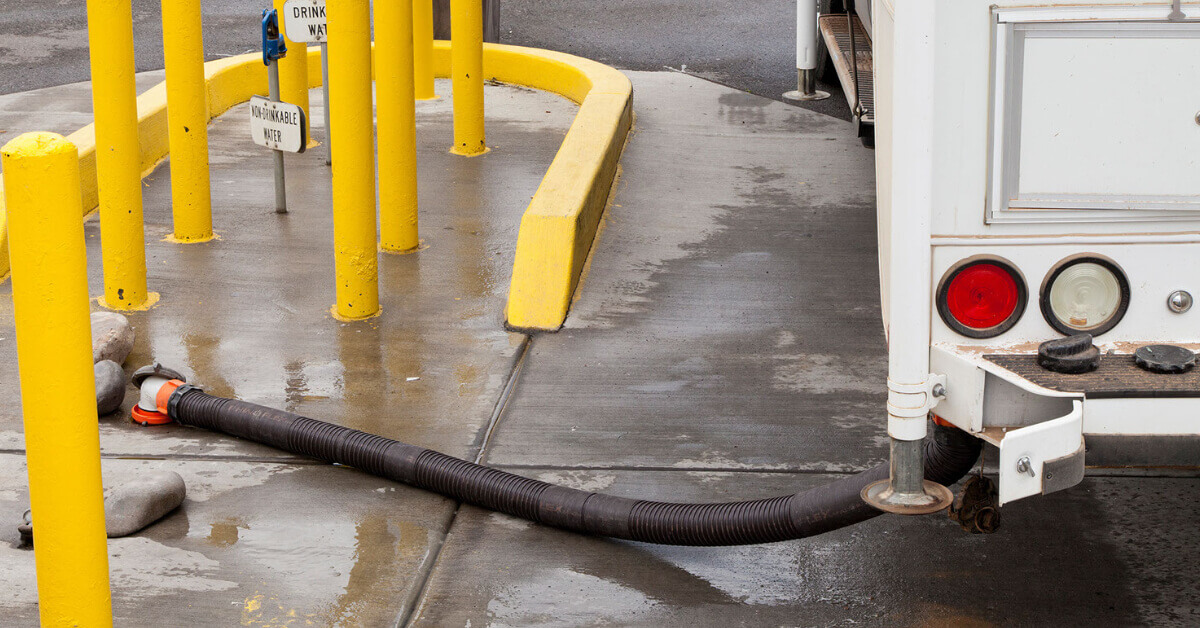- Home Page
- RVing Tips & Tricks
- Rv Camping Etiquette
5 RV camping Etiquette Tips to Keep in Mind
By Will Cotter
These 5 RV camping etiquette tips will make your trip comfortable and enjoyable for you and other RVers
RV camping is a popular way to explore the great outdoors and bond with nature. However, following social rules is important to ensure a comfortable and enjoyable experience for everyone involved. Practicing it in any setting allows us to create meaningful relationships and avoid disrupting others’ peace. In this article, we'll go over 5 essential RV camping etiquette tips that you should keep in mind.
Respect Other Campers' Peace
A quiet and peaceful environment is ideal for relaxing, sleeping, and enjoying the natural surroundings. During nighttime hours, it's essential to keep noise levels low and avoid disturbing other campers' peace. This can include reducing the volume of music or conversation and not using generators or loud appliances. When traveling with a pet companion, ensure they're on a leash. If not, mind them to ensure they're not running around the campground as they might get lost.
If you're hosting a gathering or party, be sure to let your neighbors know in advance and keep the noise levels under control. It's also a good idea to be considerate of other campers during the day by avoiding loud activities, such as playing music or using power tools, near other campers' sites.
Be Considerate of Space
After you have decided on the right RV campground, park in designated areas and avoid blocking other campers' views or access to amenities. Make sure to follow the campground's rules and guidelines for parking and check the surrounding area to ensure that you're clear of the view and path of other campers.
Use common areas, such as picnic tables, fire pits, or bathroom facilities, to respect other campers' needs and take turns using these amenities. For example, if a picnic table is being used by another RVer, wait for them to finish before using it yourself. Avoid activities that encroach on their area, such as setting up a tent or playing games too close to their site.
Dispose of Your Waste Properly
When RV camping, ensure that you keep the environment clean and pristine, as it is a shared space. Be a responsible and ethical RV camper. Follow the campground's garbage and sewage disposal guidelines and dispose of waste safely and responsibly. Avoid littering and leaving trash around your campsite; only throw your garbage in designated containers. If there are no designated containers available, bring your own trash bags and dispose of waste at a later time.
When it comes to sewage disposal, check the campground's rules and guidelines. This may include using designated dump stations or connecting to the campground's sewage system. If you're camping in a remote area, carrying a portable waste tank and disposing of sewage at designated dump stations or appropriate locations is a good idea. It’s so important to conserve resources and minimize waste while camping. This can include using reusable containers, conserving water, and avoiding single-use items like disposable plates or cups.
Respect the Environment
Following the "Leave No Trace Principle" is a great way to show your respect for the environment. This principle aims to minimize the impact of camping on the natural surroundings and protect the environment for future generations.
One of the key components of Leave No Trace is the proper disposal of waste, including garbage and sewage, which is mentioned above.
A considerate and responsible camper also never leaves a campfire unattended. While it can provide warmth and light and create a festive atmosphere, it can also be dangerous if not handled properly. According to National Park Service, nearly 85% of wildfires are caused by humans as a result of unsupervised campfires, the burning of debris, equipment use and malfunctions, discarded cigarettes, and intentional acts of arson.
Another aspect of this principle is to avoid disturbing wildlife. This means respecting animals' natural habitats, avoiding contact with wild animals, and storing food securely to prevent attracting wildlife to your campsite. Being mindful of the noise levels helps avoid disturbing the area's wildlife. Also, do not cut down trees, pick plants or flowers, and stay on designated trails to minimize erosion and damage to the natural surroundings.
Be Courteous to Others
Basic manners, such as saying hello, introducing yourself, and respecting other campers' privacy, can go a long way in ensuring a positive camping experience for all. Courtesy helps create a friendly and welcoming environment for everyone.
When you arrive at the campground, take the time to introduce yourself to your neighbors and make small talk. Saying hello and introducing yourself can help break the ice and create a friendly atmosphere. Scout the area and you'll find RV friends. If you're camping near someone for an extended period, it's a good idea to coordinate with them about things like quiet hours or shared use of common areas.
Final Thoughts
Following these 5 essential RV camping etiquette tips can ensure a comfortable and enjoyable trip for everyone involved. Remember to be considerate of your surroundings, respect other campers' space, and follow proper waste disposal practices to keep the environment clean. Happy camping!
About The Author
Will Cotter is a certified wanderlust. He works remotely and runs his professional cleaning companies, including the newest brand, FreshSpace Cleaning. Will has a passion for travel and adventure, and he intends to embark on a breathtaking and scenic road trip in a campervan soon.


Comments
Do you have a comment on this topic? You can leave your comment in the box below.